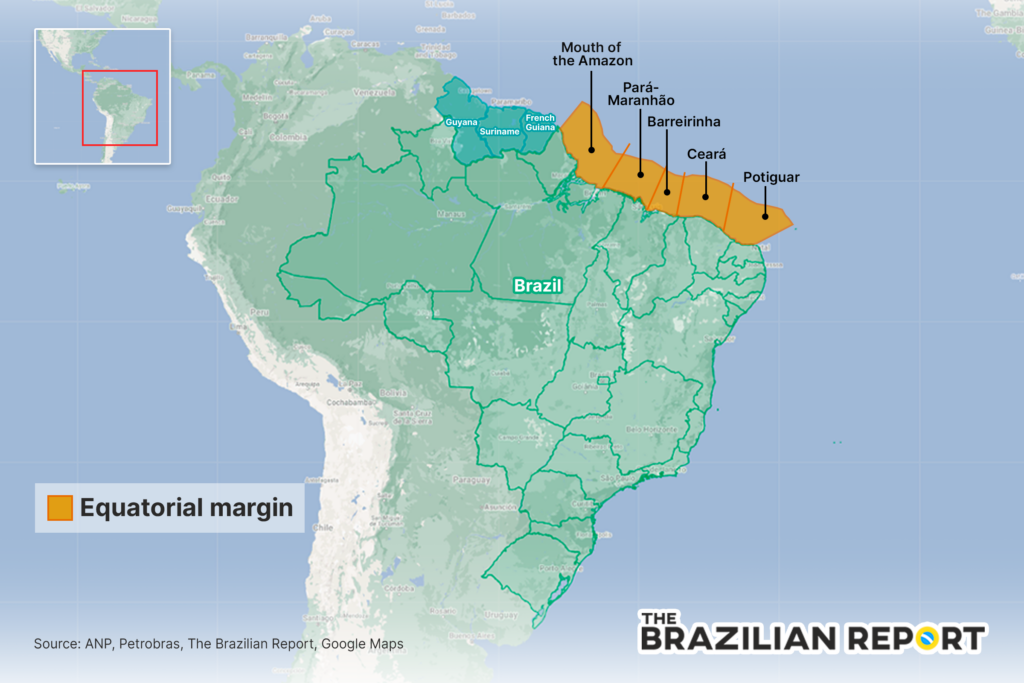Brazil’s state-controlled oil and gas giant Petrobras started to move a drillship away from the coast of the northern state of Amapá, in an area known as the Equatorial Margin. The process began on Monday, the company confirmed.
“The vessel was demobilized due to the rejection of the environmental licensing process by [federal environmental protection agency] Ibama,” and it will instead be used in the Campos Basin in Brazil’s southeastern coast, Petrobras told The Brazilian Report.
The Equatorial Margin spreads across the northern and northeastern coasts of Brazil and is seen as one of the world’s most coveted new oil frontiers. Significant discoveries in Guyana and the analogous African Equatorial Margin have heightened the interests over reserves in Brazil’s territorial waters — and Petrobras recently made drilling in the region a top priority.
Last month, Ibama denied Petrobras a license to drill an exploratory well in the area, citing “worrying inconsistencies” in the companies’ studies supposed to assure that oil exploration activities would be environmentally safe. The company appealed to Ibama on May 25, but there is no timetable for a new decision to be issued.

A group of 80 civil society organizations that had expressed opposition to the project back in April highlighted that the oil drilling plans not only threaten the ecosystems of the ecologically sensitive area that spans the mouth of the Amazon River, but are also “incoherent with the socio-environmental commitments made by the Brazilian government to the Brazilian population and international community.”
Petrobras did not announce the withdrawal of the drillship on its website or social media accounts (the information was first reported by energy news website EPBR last week). The company did not reply to The Brazilian Report on how much the operation will cost, nor did it provide a deadline for the ship to reach the Campos Basin.
In a September 2022 report, Oslo-based business intelligence company Rystad Energy said that exploration in the South American Equatorial Region highlights “the potential for a significant increase in exploration activity” in Brazil.
Rystad Energy added that activities in the region “will require sound technological and operational know-how to withstand the harsh environmental conditions.” The “primary risk” to investors, the report said, “involves environmental approval” from Ibama.
Interest in drilling in the region grew with the recent oil boom in Guyana, where GDP jumped by 43 percent in 2020 and 19 percent in 2021 on the coattails of huge offshore oil discoveries.


 Search
Search






































